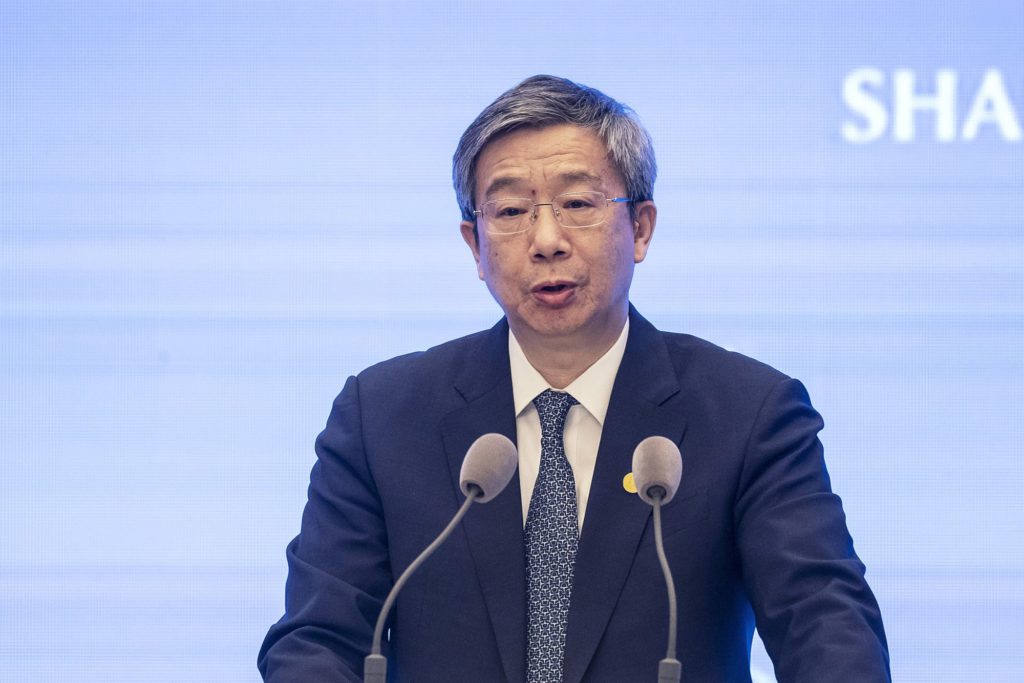China’s centralized digital yuan should balance the privacy of its users with the need to prevent people from using the currency to commit crimes, China’s central bank governor said.
(Bloomberg) — China’s centralized digital yuan should balance the privacy of its users with the need to prevent people from using the currency to commit crimes, China’s central bank governor said.
“Anonymity and full disclosure are not as simple as black and white,” said Yi Gang, governor of the People’s Bank of China, in a virtual speech Monday to the Hong Kong FinTech Week conference. He added that officials must “strike a delicate balance between protecting privacy and combating illicit activities.”
“In designing e-CNY we try to ensure privacy protection and financial security through, by and large, anonymity and managed anonymity,” said Yi, referring to the digital version of China’s currency. He added that data on transactions would be secured and “encrypted for storage.”
Parties not directly involved with a transaction would not be able to identify sensitive consumer information, he said, adding that anyone asking for such information would need “rigorous legal authorization.”
While the central bank has stressed the importance of privacy for the digital yuan in the past, it has also said it should not be as anonymous as cash because of the risk of money laundering and other illegal activity. The country has trialed the currency in 15 provinces as it works toward a nationwide launch.
Yi, meanwhile, has overseen the central bank for the past few years as testing for the digital currency expanded, though his exit from party leadership following the Communist Party congress suggests he may depart as governor.
Following Yi’s remarks, Xiao Yuanqi — a vice chairman of the China Banking and Insurance Regulatory Commission — sounded a similar note of caution toward financial innovation.
“We need to strike a sound balance between innovation and risk control, and make sure that innovation is carried out in a safe and prudent manner,” he said, noting digital payments have grown rapidly and have a broad reach.
“We all know technology is neutral, but in practice it could be intertwined with financial misconduct and become a tool for fraud, money laundering and even crimes,” Xiao added.
–With assistance from Yujing Liu.
More stories like this are available on bloomberg.com
©2022 Bloomberg L.P.











